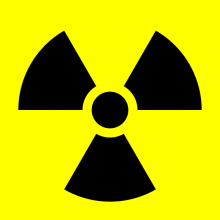The nuclear meeting between the P5+1 and Iran set for Wednesday has a definite now or never feel to it. While the West is understandably reticent to launch a military strike on Iran’s nuclear facilities, the Iranians are making dangerous progress towards nuclear weapons.
The number of pieces on this nuclear chessboard are dwindling, along with time for fruitless negotiations. Potential checkmates for both sides are on the horizon.
The significance of Wednesday’s discussions between Iran and the P5+1—the US, the UK, France, Russia, China and Germany—was highlighted by a couple reports regarding US and Israeli posturing on Iran. For one thing, the US State Department attempted to downplay reports of US Ambassador Dan Shapiro saying the US is ready to attack Iran should that be necessary.
In comments to reporters released by the US State Department, spokesperson Victoria Nuland compared Shapiro’s words to previous comments on contingency planning. She said the US has contingency plans to attack virtually anywhere, theoretically.
“Let me just make clear that Ambassador Shapiro’s comments were designed to reflect completely what the President has said all along, which is that even as we move forward with the P-5+1 discussions with Iran and hope that we can settle these issues through diplomacy, that we nonetheless take no option off the table,” said Nuland.
Meanwhile, the Israeli newspaper Haaretz reported Israeli Defense Minister Ehud Barak has quietly told the US that they would be willing to allow Iran to keep enriching uranium to the low 3.5 percent level as a means to give diplomacy with Iran a chance.
The Iranians are currently enriching up to 20 percent, which while short of military grade nuclear fuel, is still far down the path towards that level.
However, an Israeli official in the article warned against jumping at a bad deal with Iran. Then on Monday, Israeli Prime Minister Benjamin Netanyahu reiterated his call that Iran be made to stop all uranium enrichment, remove all nuclear material from the country and dismantle the underground Fordo nuclear facility.
“Only thus will it be possible to ensure that Iran will not have a nuclear bomb. This is Israel’s position; it has not changed and it will not change,” Netanyahu was quoted by his office as saying.
To get a broader perspective on why Wednesday’s talks are vital to averting either a war or a nuclear-armed Iran, let’s review some of the most recent moves in this chess contest between Iran and the West.
Black Knight takes White Rook: Iran announces it is moving nuclear enrichment facilities into its underground Fordo facility—thereby further protecting their nuclear ambitions. The timeline for a successful strike on Iran’s facilities, if necessary, is officially shrinking.
White Bishop takes Black Pawn: The International Atomic Energy Agency (IAEA) releases its harshest report ever on Iran, detailing concerns about potential Iranian research into explosives that can be used for nuclear weapons.
White Knight takes Black Pawn, then another, and another: Mysterious explosions and killings target facilities and officials linked to Iran’s nuclear and missile programs.
Black Pawn takes White Pawn: A US stealth drone goes down in Iran, giving Iran access to American technology and potentially harming US surveillance efforts.
White Rook takes Black Bishop: The European Union announces tough sanctions on Iran’s oil industry to begin this summer—possibly the strongest sanctions on Iran yet.
Both White and Black swap their own Kings and Rooks, aka “Castling”: After a lengthy break in talks, the P5+1 meet again with Iran over the latter’s nuclear program. Both sides hail the positive aspects of the meeting and set the next meeting for May 23.
White Knight threatens Black Queen: Israel forms new unity government with a broad coalition. Theoretically, the move offers stability and political cover for an Israeli strike on Iran’s nuclear facilities.
And that brings us to today. While the West’s white pieces have scored big points in the last few months, they’re really playing catch-up. Iran has slowly marched across the board and has put the West on the brink. Now the West has done the same to Iran.
And so Wednesday is something of a final showdown before things get really intense. If the diplomacy works, one of the world’s greatest threats could be put aside—a diplomatic checkmate for the West. That is, unfortunately, very unlikely.
Still, even if the talks are partially successful, and Iran makes some real concessions, a stalemate could be reached. A war could be averted for years at least, and the Iranian nuclear monster will be put to sleep, for now.
On the other hand, the West could end up with a weak deal that allows Iran to keep quietly moving forward towards nukes, thereby putting Israel in a corner and raising the specter of a key sponsor of terrorism someday acquiring the bomb. Iran has plenty of experience playing delay tactics and feigning compromise.
Netanyahu warned of that risk in comments made last week. “Iran is good at playing this chess game. They know that sometimes you have to sacrifice a pawn to save the king.”
Lastly, there is the risk that the talks could reach nothing. That Iran will refuse any concessions acceptable by the West and as a result, the ticker towards war will reach the eleventh hour. The timeline could be months, not years.
So this is the set-up: A swarm of white pieces are marching towards the black king. The black knight is sizing up the white king in a soon-to-be check. And all the while the clock timing the players is clicking louder and louder.
It’s the West’s move next. They have a critical meeting to make it a good one—because if they lose this match, the game doesn’t end with a handshake.
(By Joshua Spurlock, www.themideastupdate.com, May 21, 2012)

